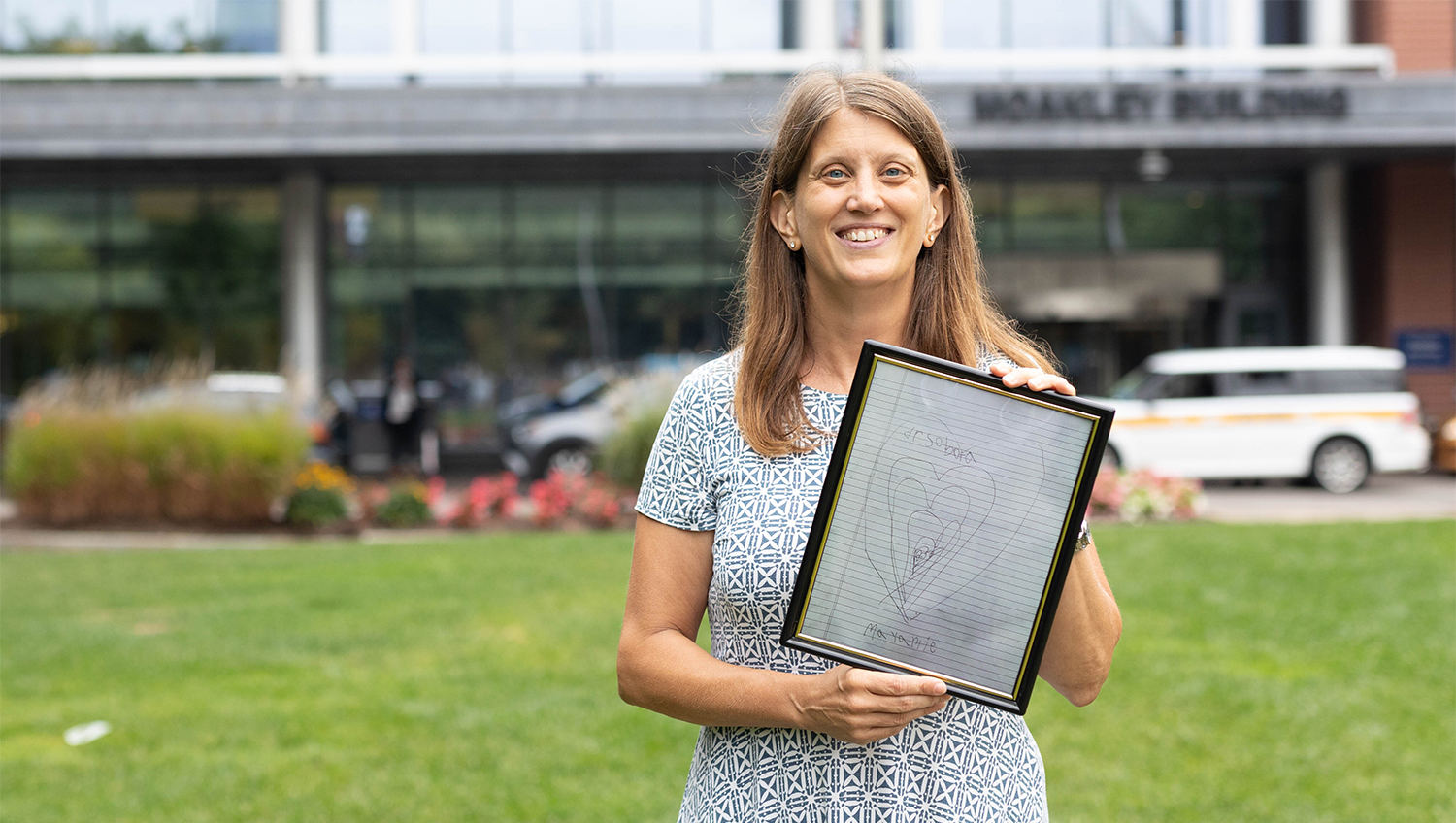Boston Medical Center’s Chief of Pediatric Hematology Testifies on Beacon Hill In Support of Sickle Cell Bill
November 17, 2023
By Katie Dillon

Boston Medical Center
Amy Sobota, MD, MPH at the 2022 Sickle Cell Disease Day on the Moakley Green at Boston Medical Center. (Photo credit: Boston Medical Center)
This new legislation would allow for the creation and maintenance of a sickle cell disease registry, which is key in closing racial gaps and improving outcomes in sickle cell disease.
Sickle cell disease (SCD) is a genetic blood disorder that can affects a person’s red blood cells and can cause severe pain and other complications among people diagnosed with the disorder. One in twelve people of African descent carry the sickle cell gene, meaning that Black people are diagnosed with SCD at higher rates than almost any other ethnic group. Historically, SCD is one of the more under-funded and under-represented disorders. But Boston Medical Center and the Commonwealth of Massachusetts are trying to change that.
BMC’s Center of Excellence in Sickle Cell Disease is the largest center of its kind in New England, providing comprehensive care to over 600 patients annually, including 400 adults. It is one of very few lifespan SCD centers in New England with multidisciplinary teams serving children adolescents and adults. Boston Medical Center has served as a SCD research center for decades, from pioneering work on hydroxyurea (a class of medication treating SCD) to innovations in gene therapy with the potential to provide a cure.
On November 14 2023, Amy Sobota, MD, MPH the Chief of Pediatric Hematology at BMC testified in support of H.1161/S.678, An Act to Improve Sickle Cell Care. This legislation would improve the care of people living with sickle cell disease, including the creation of a sickle cell disease registry to better monitor the health outcomes of patients. Sobota treats patients with sickle cell disease and runs BMC’s transition program to support young adults as they transfer out of pediatrics and into adult primary care.
Amy Sobota’s testimony on sickle cell disease care
I would like to focus my testimony on the portion of the bill that would support the development and maintenance of a SCD registry and reports for individuals getting care within the Commonwealth. [H]istoric inequities and systemic racism have resulted in SCD being under-funded and under-researched. For example, when compared with cystic fibrosis, which affects 1/3 as many Americans, SCD receives far less federal research funding per affected individual and a fraction of the foundation support. As a result, there is less published research and fewer approved medications for SCD which affects mainly patients of color, many of whom live in economically disadvantaged circumstances. We know from work in other chronic illnesses that establishing registries and reporting on health outcomes, as proposed in this bill for SCD, drives improvements in care. Together with funding to establish quality metrics in SCD across the Commonwealth, these new registry reports will allow patients to choose where to get care and ensure that more individuals are receiving the quality of care that they deserve.
You have heard today from people affected by SCD who can speak more eloquently than I can about the personal impact of the disease. But I care for hundreds of children in our region and witness their daily struggles…I urge this committee to support [this bill], which will bring quality care, recognition, and hope to many around our great Commonwealth and serve as an example of what can be done by a group of caring and dedicated individuals.


